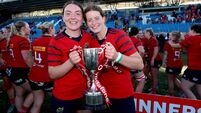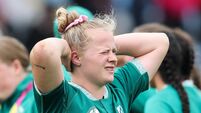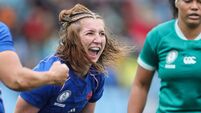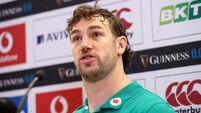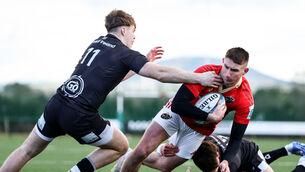Brian O'Driscoll urges Ireland women to make the most of World Cup opportunity

Brian O’Driscoll and Lynne Cantwell team up to celebrate Defender as Principal Partner for the Women’s Rugby World Cup 2025. Pic: Sasko Lazarov / Photocall Ireland.
Brian O’Driscoll has been here. Four times, to be exact. Playing the waiting game.
Over eleven weeks have come and gone since the Ireland women’s team started their prep for a World Cup that, for them, will finally get going on Sunday in Northampton.




